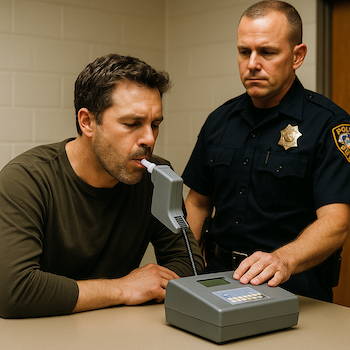 Refusing a chemical test during a DUI stop in Illinois can lead to an automatic license revocation, making reinstatement a challenging but achievable process with the right approach. As an experienced Illinois reinstatement lawyer and former Will County prosecutor with over 20 years in the field, I've helped clients in Joliet overcome implied consent revocations to regain their driving privileges. At the Law Office of Jack L. Zaremba, we specialize in handling revocations from test refusals, which often result in longer suspensions than failures. In this blog post, we'll cover the implications of refusing tests, revocation durations, reinstatement requirements, and proven strategies for success in 2025. For more on related topics, explore our guides on BAIID requirements /baiid-requirements-drivers-license-reinstatement-illinois-2025 and statutory summary suspensions /statutory-summary-suspension-reinstatement-illinois-2025-guide).
Refusing a chemical test during a DUI stop in Illinois can lead to an automatic license revocation, making reinstatement a challenging but achievable process with the right approach. As an experienced Illinois reinstatement lawyer and former Will County prosecutor with over 20 years in the field, I've helped clients in Joliet overcome implied consent revocations to regain their driving privileges. At the Law Office of Jack L. Zaremba, we specialize in handling revocations from test refusals, which often result in longer suspensions than failures. In this blog post, we'll cover the implications of refusing tests, revocation durations, reinstatement requirements, and proven strategies for success in 2025. For more on related topics, explore our guides on BAIID requirements /baiid-requirements-drivers-license-reinstatement-illinois-2025 and statutory summary suspensions /statutory-summary-suspension-reinstatement-illinois-2025-guide).
Understanding Revocation for Chemical Test Refusal in Illinois
Under Illinois' implied consent law (625 ILCS 5/11-501.1), drivers consent to chemical testing (breath, blood, or urine) upon arrest for DUI. Refusal triggers an automatic statutory summary suspension, escalating to revocation upon conviction. For first refusals, suspension lasts 12 months (vs. 6 months for failing); subsequent refusals extend to 3 years. Revocation follows a DUI conviction, lasting at least 1 year for first offenses, 5 years for second, or permanently for more. In Will County, refusals are common in traffic stops on I-55, often complicating cases with drug or alcohol impairment claims. For the full implied consent statute, see the Illinois Vehicle Code on Implied Consent .
In 2025, courts emphasize evidence of impairment despite refusals, but revocations remain administrative, requiring Secretary of State hearings for reinstatement.
Requirements for Reinstatement After Test Refusal Revocation:
- Serve the full revocation period (e.g., 2 years for first refusal with conviction).
- Complete an alcohol/drug evaluation, often classifying as high risk due to refusal, requiring 75 hours of treatment, AA/NA attendance, and sobriety documentation.
- Gather evidence: Treatment certificates, character references, SR-22 insurance, and hardship proofs.
- Apply for a formal or informal hearing with the Secretary of State, paying fees ($50-$250).
- Install BAIID for RDPs or post-reinstatement (minimum 5 months for multiples).
Non-compliance, like unresolved fines, leads to denials. Virtual hearings in 2025 aid accessibility, but thorough packets are vital.
Strategies to Challenge and Overcome Revocation
Strategies include:
- Rescind the Suspension Early: Petition court within 90 days to argue invalid warnings or lack of probable cause.
- Build a Strong Hearing Case: Demonstrate change with consistent sobriety logs and witnesses.
- Address Refusal Stigma: Use experts to explain medical reasons for refusal (e.g., asthma affecting breath tests).
- Pursue RDP Interim: Obtain limited privileges with BAIID during revocation.
- Appeal Denials: Request reconsideration within 35 days with new evidence.
In Joliet cases, we've rescinded refusals by challenging stop validity, avoiding revocation altogether.
Why Hire an Illinois Reinstatement Lawyer?
Test refusal revocations are tougher due to presumed non-cooperation, but my prosecutorial insight helps craft compelling arguments and navigate hearings effectively.
If you're seeking reinstatement after a test refusal in Will County, contact the Law Office of Jack L. Zaremba for a free consultation. Visit our contact page or call our Joliet office to strategize your reinstatement in 2025. Restore your license and mobility.

